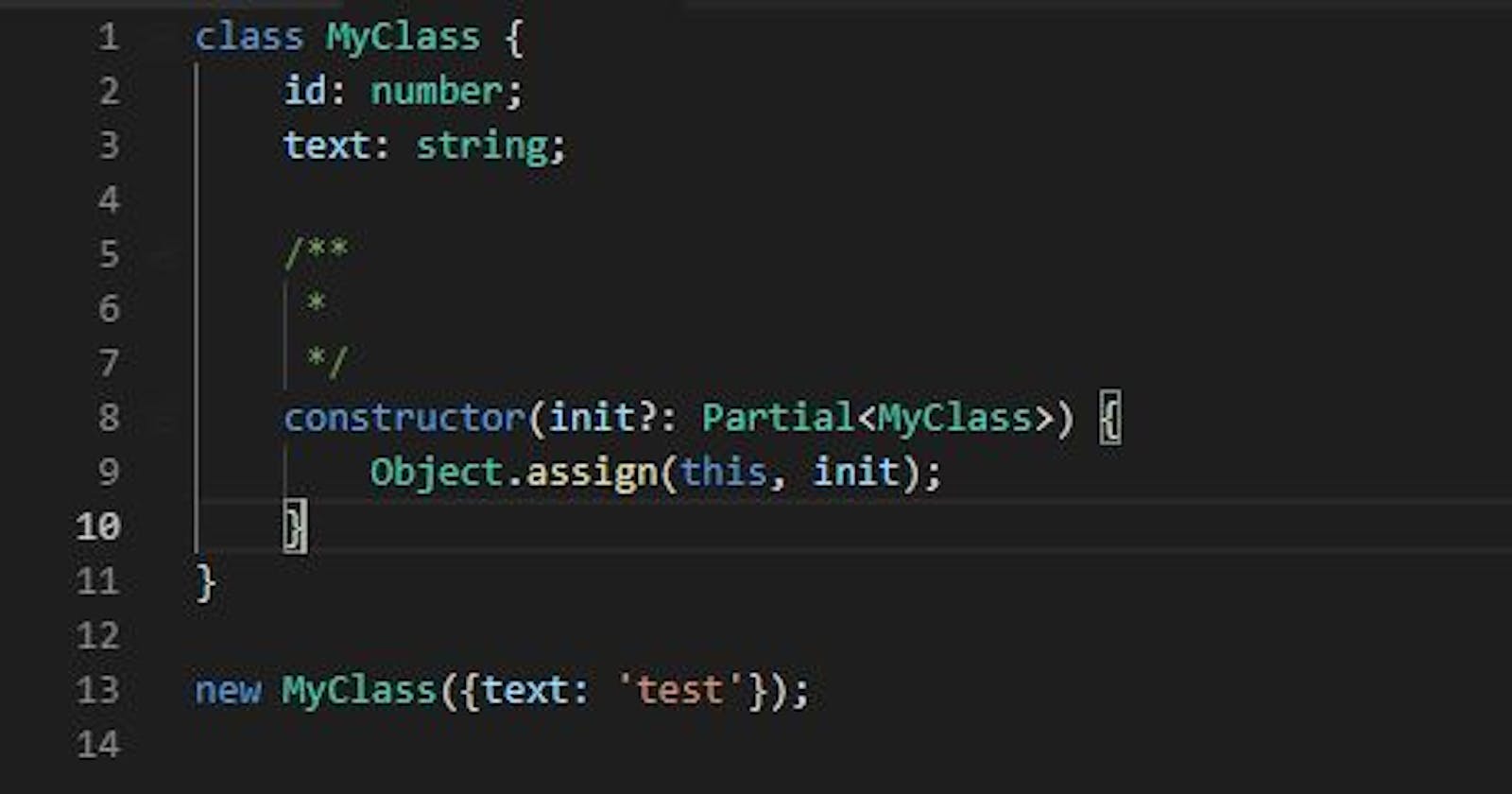In TypeScript, I've missed the ease of initialising objects as I have in dotnet with object initalisation. While researching an issue, I stumbled upon a little trick that makes initialising an object a breeze in TypeScript.
Let's dive right in with an example class:
class MyClass {
id: number;
text: string;
}
Now, if I want to initialise this, I have a few options. I can add a constructor, but then I'd need a constructor for every possible combination or a lot of nullable properties.
consturctor(id: number, text: string) {
this.id = id;
this.text = text;
}
But this leaves me with the problem that I don't always want to set the id. So I'd need to either create a constructor with nullable parameters which leads to "very clean" constructors like new MyClass(null, 'some text') or a constructor for every combination that I would like. Which, in my opinion, is very time consuming and I'll always forget one or I'll have to create a new one later for an additional scenario.
An alternative is to just use give each property a public setter so I can initialise the properties after I create the object.
const myClass = new MyClass();
myClass.text = 'some text';
Why even bother with all the benefits of immutability or hiding certain properties from the public.
To solve this in a reusable way, let's get the Partial<> class involved to solve this little conundrum. This class can hold part of a strongly typed object. So I can have auto completion support, yet I don't have to supply all properties. This allows me to create a single constructor with an optional Partial<MyClass> parameter that can take any combination of properties.
constructor(init?: Partial) {
Object.assign(this, init);
}
The Object.assign(this, init); maps all the properties in the Partial<> object to the public available properties of this object. This works fine with both fields and properties.
Now I can use all of the following constructors.
new MyClass();
new MyClass({text: 'some text'});
new MyClass({id: 1, text: 'some text'});
That's a pretty nice feature to have in my code.

